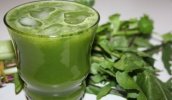A woman’s body is delicate and should be treated with care. Women are advised to pay adequate attention to self-awareness and personal hygiene. Women are more prone to infections and have more significant risks of infections affecting the reproductive system.
While some of these infections are sexually transmitted, others are not. Yeast infection is one of the many common health conditions that affect most women.
This article will explore the facts and myths surrounding using scent leaf to treat yeast infection, the recommended medical treatment, nutritional components and ways to prevent yeast infection.
What is yeast Infection?
Yeast infection, also known as vaginal candida or candidiasis, occurs when there is an overgrowth of the fungus candida albicans in the vagina. Yeast infection causes an unpleasant discharge, itchiness and soreness of the vulva. It is important to note that yeast infection is not considered a sexually transmitted infection, but it can be triggered by sex, especially oral-genital sex.
It is what some refer to as “toilet infection” because they believe it is contracted from an unclean toilet. Other types of candida fungus can cause yeast infections, but the fungus candida albicans is responsible for most vaginal yeast infections.
Common symptoms are itching, a burning sensation and a thick white discharge. While yeast infection is not usually a serious health issue, it can be very uncomfortable and annoying.
Causes of yeast infection
Naturally, the vagina contains a balanced mix of yeast, including candida and bacteria. Certain bacteria help to prevent an overgrowth of yeast. Many things can impede the balance and cause a yeast infection. Some of the most common causes include:
Taking antibiotics: Antibiotics are often prescribed to treat bacterial infections, but excessive intake can cause an imbalance in the natural vaginal flora, which creates an environment that's more favorable for yeast to overgrow.
Pregnancy: The changes in hormones during pregnancy can be a risk factor for yeast infection because, during pregnancy, the body produces more estrogen, which can inadvertently affect the balance of bacteria in the vagina.
Diabetes: High blood sugar levels can also lead to an overgrowth of yeast. Yeast thrives on sugar, and high blood sugar levels can lead to an increase in the amount of sugar in the vagina which creates a perfect environment for yeast to grow. Additionally, people with diabetes often have a weakened immune system, which can make them more susceptible to all kinds of infections, including yeast infections.
Using douches or scented soaps: Many of these products contain chemicals that are not good for the PH balance of the vagina. Some of these products can alter the balance of bacteria in the vagina and cause yeast to overgrow and also making it prone to other infections.
Using birth control pills that increase estrogen levels: Certain birth control pills disrupt the balance of hormones in the body, thereby leading to yeast infection. Although not all birth control pills provide a risk factor, it is vital to keep that in mind while ingesting or, better still, speak to your healthcare provider.
How to medically treat yeast infection
Yeast infections are not usually dangerous and are often easily treated. The first step in treating a yeast infection is to get a proper diagnosis from a doctor when you begin to notice or feel some discomfort in your vagina.
The diagnosis is usually done by taking a swab of the affected area and sending it to a laboratory for analysis. After confirmation of infection, the doctor may then recommend some treatments.
Medications can effectively treat vaginal yeast infections. It can either be taken orally or applied directly to the affected area. However, treatment for yeast infections depends on the severity and frequency of occurrence.
For mild to moderate symptoms and infrequent episodes, your doctor might recommend:
- Over-the-counter antifungal medication available as ointments, pills, or suppositories like Miconazole or clotrimazole for just a few days.
- A single oral dose of Fluconazole.
If the infection is recurrent, occurring up to four times or more within a year, you may need a longer treatment course and a maintenance plan.
Avoid having sex during your course of treatment, as this may slow down the treatment process or cause a recurrence. Simple steps like keeping off antibiotics and maintaining a healthy lifestyle can help keep the infection at bay.
It is always important to adhere strictly to the instructions surrounding its treatment to avoid reoccurrence. Also, note that oral intake of this medication during pregnancy is not safe.
Scent leaf and its health benefits
Scent leaf, or Ocimum gratissimum, is a homegrown shrub used for centuries in traditional medicine and typically found in farms and gardens. It is called Nchuanwu by the Igbos and Efinrin in Yoruba. Scent leaf is known for its aromatic scent and distinct taste, mainly used as a spice for cooking delicacies.
This herb contains vital bioactive substances such as iron, phosphorus, calcium, and vitamin A, essential for human health. It has many health benefits, including being a natural antifungal agent with antimicrobial and anti-inflammatory properties.
Is it safe to use scent leaf water to cure yeast infection?
There are many myths about how to treat yeast infections, including the use of scent leaf, also known as Nigerian basil or Ocimum gratissimum. Some claim that the extract may effectively treat candida albicans, the fungus that causes yeast infections, because of its antifungal properties.
Scent leaf has potential antifungal properties, but there is currently no scientific evidence that it is safe or effective to use this herb to treat yeast infections, mainly because it can be challenging to determine the correct dosage. It is always best to speak with a doctor before trying home remedies for yeast infections.
How to prevent yeast infection
- Keep the genital area clean and dry. Yeast thrives in moistness. Endeavour to change out of wet underwear as soon as you can.
- Wear cotton underwear and loose-fitting clothes to allow the passage of air into the vulva.
- Avoid the use of feminine deodorants, scented tampons or pads.
- Maintaining a healthy lifestyle by building a strong immune system, regular exercise, a healthy diet and a clean environment.
- Avoid the use of antibiotics except when necessary.
- If you’re sexually active, urinating after sexual intercourse can help keep off bacteria that may have penetrated the vagina.
When is it necessary to see a doctor?
It is essential you see a doctor when you notice or feel an imbalance in vaginal areas like intense itching, irritation, burning senses or discomfort while peeing for the first time or if you have never been diagnosed with a yeast infection, also when it is recurring. As much as over-the-counter medications are available, it is always necessary to see a doctor first and undergo a diagnosis.
Douching over hot water of scent leaf extract is not the best method as it can kill the bacteria that control fungus. While scent leaf has been used traditionally as a cure for diseases, it is best to consume moderately. If you think you may have a yeast infection, it is important to see a doctor to get a proper diagnosis and treatment.
Frequently Asked Questions (FAQs)
- Does yeast infection cause itching?
Itching is one of the symptoms of yeast infection.
- What are the signs I have a yeast infection?
You may likely experience itching, redness, irritation, excoriation or burning sensation in the vagina and vulva area or, worse cases, severe fever.










Comments